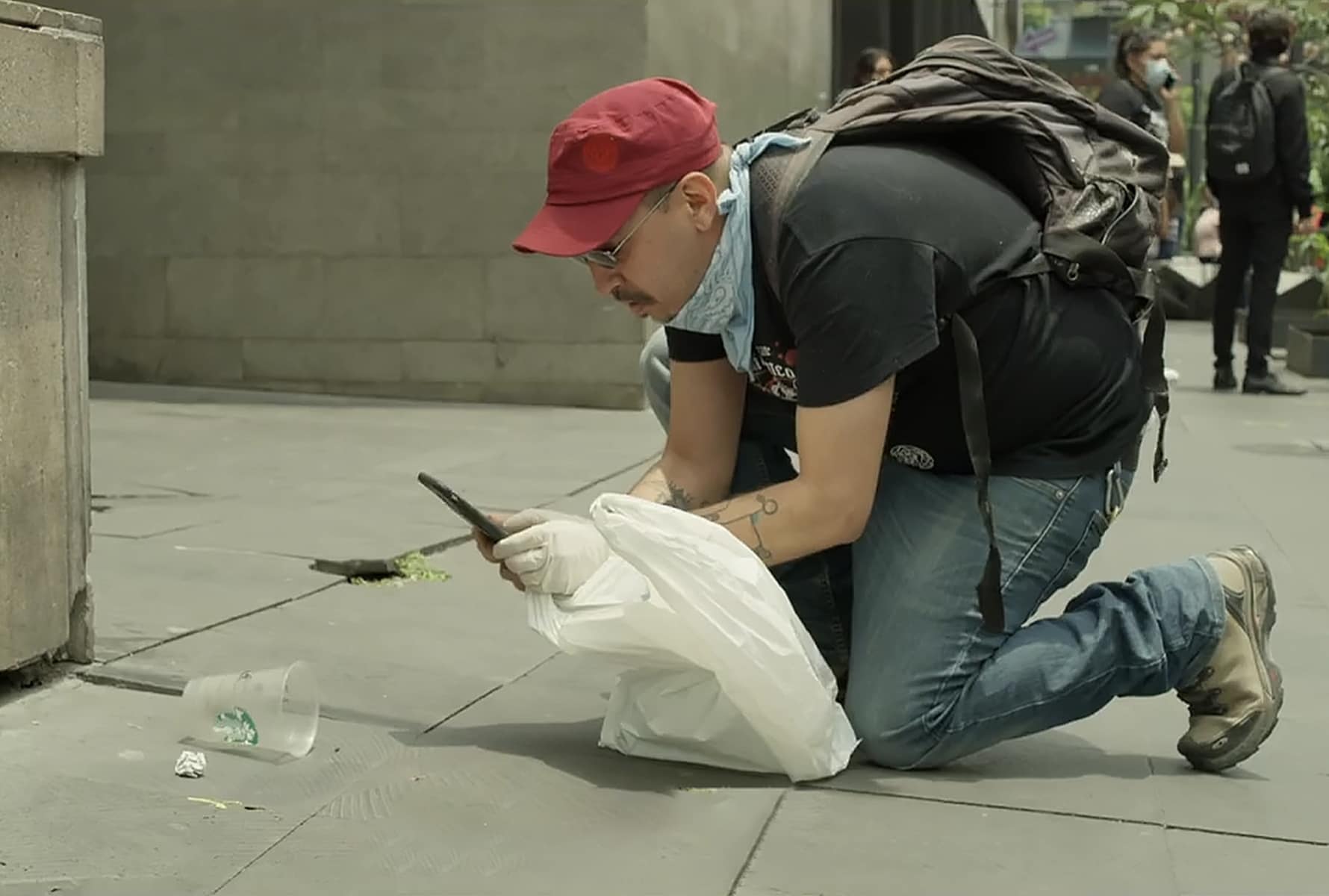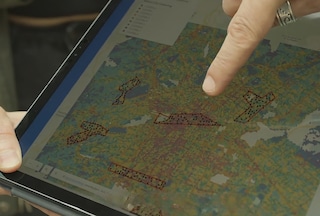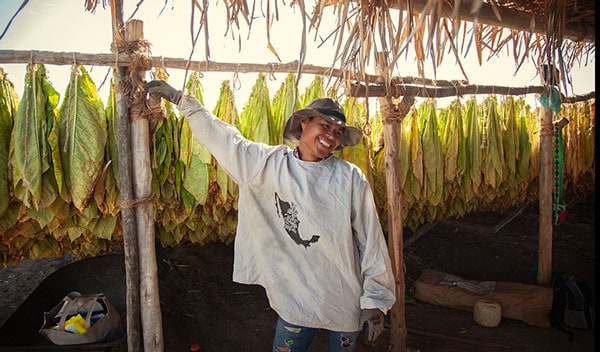Finding solutions to more effectively manage the impact of our products on the environment has long been a focus for Philip Morris International (PMI), and is a key pillar of our sustainability strategy. Reducing and appropriately managing post-consumer waste means that we can extract, convert, and use fewer raw materials from a planet with limited natural resources. It’s the right thing to do.
Turning to technology has been one of the ways we have worked to innovate our post-consumer waste strategy. That’s why we have been partnering with Litterati, a company on a mission to raise awareness and encourage behavioral change. Litterati works by engaging users to take pictures of the litter they see. These geo-tagged images enable the team to create data on littering that can lead to actionable insights, such as adding more bins in high-litter areas.
Utilizing technology for a smarter way to reduce litter over time
Instrumental music starts
Voiceover starts:
Litterati is an organization dedicated to
the prevention of litter we use
Jeff Kirschner, Founder and CEO of Litterati, speaks to camera:
...technology to engage people and then use
the collected data to drive smarter
litter prevention strategies.
Dick Ayres, Cofounder and Chief Strategy Officer at Litterati, speaks to camera:
We started taking a photograph on Instagram and now
we've developed a platform which
connects people allows us to analyze
data and to uncover insights and patterns.
Jeff Kirschner, Founder and CEO of Litterati, speaks to camera:
The type of litter item as well
as where and when it's picked up are all
recorded for analysis.
Jens Rupp, Head of Environmental Sustainability at Philip Morris International, speaks to camera:
Litterati is one of the world's leading
experts and actors on anti-littering.
Jeff Kirschner, Founder and CEO of Litterati, speaks to camera:
We can empower people with the tools to be part of the solution.
Voiceover speaks:
The data is taken from the application
so just by taking a photograph we can
extract from that photograph the bottles,
the cans, the cigarette butts, that are in it,
they're geo-located.
We can understand
concentrations we can understand where
hot spots are.
Jeff Kirschner, Founder and CEO of Litterati, speaks to camera:
From identifying every cigarette butt or
piece of plastic on a city street to
locating illegal dog sites.
Voiceover continues:
and understanding that helps us find solutions to
how this littering can be reduced over time.
Jens Rupp, Head of Environmental Sustainability at Philip Morris International, speaks to camera:
they have a fantastic consumer-facing
app an application that can be used to
generate engagement and they also have
presence in many countries.
So working together allows us
to reach more people, to engage more
people than we could ever have dreamt of otherwise.
We're working with Litterati and also Carto,
one of the world's leading geo-analysts to develop a little
monitoring baseline in all the countries
where we operate.
This in turn will allow us to define
better programs,
more effective programs to change
behavior across the world.
Jeff Kirschner, Founder and CEO of Litterati, speaks to camera:
We can be a data driven decision tool
for every city in the world,
engaging a global community to be part
of the solution.
Jens Rupp, Head of Environmental Sustainability at Philip Morris International, speaks to camera:
We have a 2025 target to reduce by 50 percent
the plastic litter from our product,
this is an immensely ambitious target.
Jeff Kirschner, Founder and CEO of Litterati, speaks to camera:
I'm an optimist. I believe that in 10 years
we will be fast approaching the true end to litter.
Words appear on screen reading:
Philip Morris International, Litterati, Working together.
Music ends.
“Litterati is an organization dedicated to the prevention of litter,” said CEO and co-founder, Jeff Krischner.
“We use technology to engage people, and then use the collected data to drive smarter litter-prevention strategies.”
Speaking about how the company got started, chief strategy officer and co-founder Dick Ayres explained: “We started by taking photographs [of litter] on Instagram, and now we’ve developed a platform which connects people, and allows us to analyze data and uncover insights and patterns. The data is taken from the app, so we can understand where hotspots are.”
The app not only allows the team to see where the litter is, but also enables the user to share the type of litter they found, and it can even help identify illegal dumping sites.
“The type of litter item, as well as where and when it’s picked up, are all recorded for analysis,” says Krischner. “We can empower people with the tools to be a part of the solution.”
This information enables the team at Litterati and their partners to create viable, long-term solutions aiming to effectively reduce littering in the areas they focus on.
PMI’s relationship with Litterati began in 2019, with the ‘CleanDeinWien’ campaign in Austria, and they have collaborated on many projects since.
PMI continues to collaborate with Litterati to create more effective post-consumer waste management solutions and positively influence consumer behavior across the world.
“I’m an optimist,” says Krischner. “I believe that in 10 years, we will be fast approaching a true end to litter. We can be a data-driven decision tool for every city in the world, and can engage a global community to be a part of the solution.”




